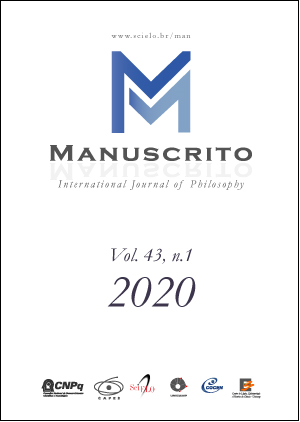Abstract
In a provocative, yet scarcely discussed, argument at the end of Knowing Full Well, Ernest Sosa has attempted to determine what kind of evidence we possess in support of the belief that our cognitive capacities as human beings are reliable. According to Sosa, we can appeal to considerations of coherence to prove that such capacities are reliable (i.e., it would be epistemically self-defeating to think otherwise). However, Sosa also declares that such considerations are not “determinative, ultima facie” reasons−which is to say, they are to be regarded as defeasible. As we will try to point out, this overall strategy is ultimately incoherent. Furthermore, as we will argue, Sosa fails in attempting to provide us with an analogy between the case of doubting the reliability of the cognitive faculties of an individual and doubting such reliability in the case of the species.
References
GARCIA, J., MCGOWAN, B. K., & GREEN, K. F. (1972). Biological constraints on conditioning. In A. Black & W. F. Prokasy (Eds.), Classical conditioning (Vol. 2, pp. 3-27).
GÓMEZ ALONSO, M. M. (2019). Wittgenstein y el impacto de Sobre la certeza en la epistemología contemporánea. In D. Pérez-Chico (Ed.), Wittgenstein y el escepticismo. Certeza, paradoja, locura.
LACKEY, J. (2008). Learning From Words: Testimony as a Source of Knowledge. Oxford: Oxford University Press.
NETA, R. (2016). How Holy is the Disjunctivist Grail? Journal of Philosophical Research, 41.
PLANTINGA, A. (1993). Warrant and Proper Function. Oxford University Press.
SILVA, P. (2013). Epistemically self-defeating arguments and skepticism about intuition. Philosophical Studies: An International Journal for Philosophy in the Analytic Tradition, 164(3), 579-589.
SOSA, E. (1994). Philosophical Scepticism and Epistemic Circularity. Proceedings of the Aristotelian Society, Supplementary Volumes, 6, 263-307.
SOSA, E. (1997a). How to Resolve the Pyrrhonian Problematic: A Lesson from Descartes. Philosophical Studies: An International Journal for Philosophy in the Analytic Tradition, 85(2/3), 229-249. Retrieved from JSTOR.
SOSA, E. (1997b). Reflective Knowledge in the Best Circles. Journal of Philosophy, 94(8), 410.
SOSA, E. (2002). Plantinga’s evolutionary meditations. In J. K. Beilby (Ed.), Naturalism defeated (pp. 91-102).
SOSA, E. (2009). Reflective Knowledge: Apt Belief and Reflective Knowledge. OUP Oxford.
SOSA, E. (2010). Knowing Full Well. Princeton University Press.
STICH, S. P. (1985). Could Man Be an Irrational Animal? Some Notes on the Epistemology of Rationality. Synthese, 64(1), 115-135.


